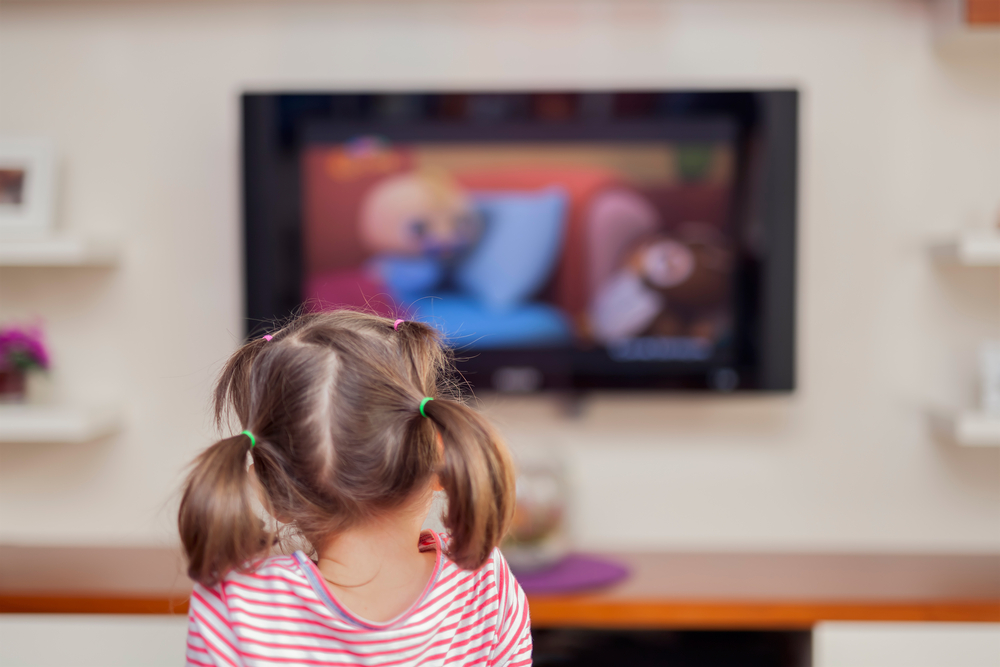Screen Time Guidelines for Kids
How to Make Informed Choices for TV Shows & Movies
In today’s digital world, where screens surround us, parents must navigate screen time with knowledge and care. At the Childrens Clinic in Newnan, GA, we understand the significance of setting appropriate screen time guidelines for kids.
By making informed choices for TV shows and movies, we can ensure that our children’s screen time experiences are enjoyable and beneficial. In this blog post, we will explore the importance of screen time guidelines and provide a brief overview of the impact that excessive or inappropriate screen time can have on our children’s development and well-being.
Understanding the Effects of Screen Time on Children
While screen time can offer educational and entertainment opportunities, it is important to be aware of potential risks. According to the American Academy of Pediatrics, excessive screen time has been linked to sedentary behavior, leading to physical health concerns such as obesity, worse vision, and poor sleep patterns. Additionally, prolonged exposure to screens can impact mental development, attention span, and social skills. Understanding the effects of screen time allows us to make informed choices, ensuring a healthy balance that promotes positive physical health, cognitive development, and overall well-being for our children.
Setting Age-Appropriate Limits

Infants & Toddlers
The CDC suggests avoiding screens entirely for infants and toddlers, except for video chatting. This is because their brain development is rapidly progressing, and they learn best through real-life interactions.

Preschoolers & Elementary-Aged Children
Preschoolers and elementary-aged children can have limited screen time, typically an hour or less, ideally for educational content and supervised co-viewing. To help you get started, click to explore some of these high-quality educational shows!

Teenagers
As children grow into teenagers, it is essential to strike a balance, encouraging responsible digital citizenship and ensuring screen time does not interfere with their sleep, physical activity, or interpersonal relationships. These guidelines, in harmony with developmental stages and individual needs, will facilitate healthy growth and development in children of all ages.
Selecting Appropriate TV Shows & Movies
Parents can start by evaluating age ratings and content descriptors provided by rating systems. This will help determine if the content suits their child’s age and maturity level. Suggesting tools and resources such as parental control settings and trusted review websites can aid in decision-making. It is also beneficial to seek out positive and educational content options that promote values like empathy, diversity, and critical thinking.
Teaching media literacy skills to children empowers them to make informed choices and develop a discerning eye toward media content. Together, these practices can ensure that screen time is enjoyable, enriching, and appropriate for our children’s development.
Creating a Balanced Media Diet
It is crucial to encourage various activities beyond screen time to ensure children’s overall development. Outdoor play, imaginative play, and reading are essential for a well-rounded childhood. Promoting these activities allows children to engage their creativity, enhance their social skills, and develop their imaginations.
While screen time can be valuable for educational purposes, balancing academic and entertainment content is vital. It is equally important to emphasize the benefits of reading and other non-screen activities that foster critical thinking, language development, and a love for learning. By creating a balanced media diet, we can support our children’s healthy growth and development, both on and off screens.
Nurturing Healthy Screen Habits
At Childrens Clinic, nurturing healthy screen habits is a top priority for children’s screen time. Setting screen-free zones and designated screen periods can provide structure and balance in a child’s daily routine. Involving parents in monitoring and co-viewing can promote healthy communication and ensure that the content viewed is appropriate for their child’s age and maturity level. Enabling age-appropriate and interactive screen experiences allows children to interact and positively engage with technology, promoting learning and curiosity.
Managing screen time during holidays and vacations is also crucial, encouraging more physical and social activities that foster healthy habits and memories that last longer than the time spent on a screen. By implementing healthy screen habits and promoting balance, we can ensure a happy and healthy childhood for our children.
Addressing Common Concerns

In addressing common concerns related to screen time, the Childrens Clinic understands the challenges parents face in managing their children’s digital consumption. Excessive screen time and addiction can be problematic, and it’s essential to establish clear boundaries and limits. Another concern is the persuasive advertising that accompanies TV shows and movies. Educating children about the tactics used in advertising and discussing the importance of critical thinking can empower them to make informed choices.
Furthermore, addressing fears and anxiety resulting from media exposure is crucial. Open communication and discussion about the content help alleviate these concerns and provide reassurance. By acknowledging and addressing these common concerns, parents can confidently navigate the digital landscape, ensuring a healthy and balanced screen time experience for their children.
Reach Out to the Childrens Clinic Today
In conclusion, making informed choices about children’s screen time is crucial for their development and well-being. By evaluating age ratings, considering content descriptors, and utilizing tools and resources available, parents can ensure that the content their children engage with is appropriate and beneficial.
Encouraging a balanced media diet that includes a variety of activities beyond screens, involving parents in monitoring and co-viewing, and promoting age-appropriate and interactive screen experiences are all essential steps to support healthy media habits.
The Childrens Clinic in Newnan, GA is a valuable resource for parents seeking guidance in managing their children’s screen time. By prioritizing informed decision-making, we empower our children to engage with screen media in a healthy and enriching way, fostering their growth and well-rounded development.

